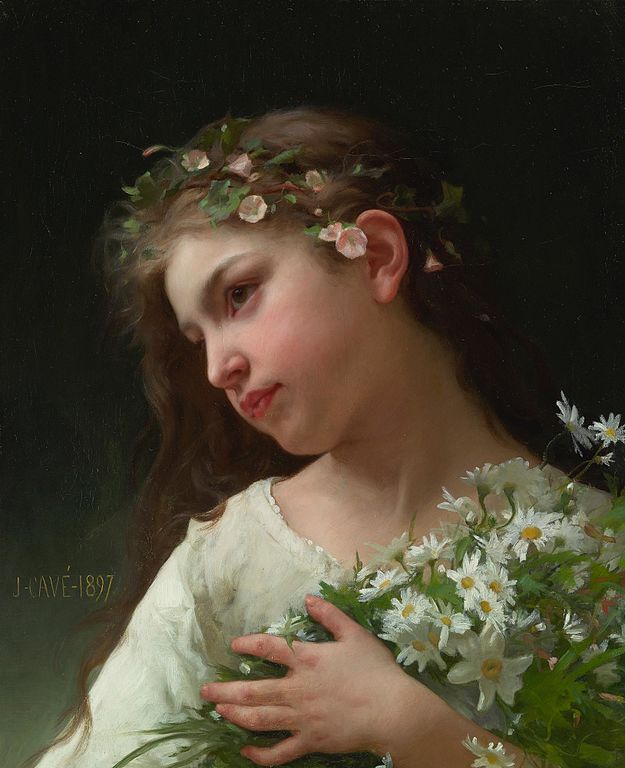
After being rescued from vagrancy, the poet Francis Thompson was brought by Wilfrid and Alice Meynell to Our Lady of England Priory in Storrington, West Sussex, where he stayed in order to recover from his opium addiction. In his “Biographical Note” introducing Selected Poems of Francis Thompson, Wilfrid Meynell wrote:
After a course of medical treatment, he went to Storrington. That beautiful Sussex village has now its fixed place on the map of English literature. For there it was that Francis Thompson discovered his possibilities as a poet. On its common he met the village child, whom he calls “Daisy,” in the verses that are so named.
It is indeed one of the tenderest and most beautiful poems of Thompson.
DAISY
Where the thistle lifts a purple crown
Six foot out of the turf,
And the harebell shakes on the windy hill—
O the breath of the distant surf!—
The hills look over on the South,
And southward dreams the sea;
And, with the sea-breeze hand in hand,
Came innocence and she.
Where ‘mid the gorse the raspberry
Red for the gatherer springs,
Two children did we stray and talk
Wise, idle, childish things.
She listened with big-lipped surprise,
Breast-deep ‘mid flower and spine:
Her skin was like a grape, whose veins
Run snow instead of wine.
She knew not those sweet words she spake,
Nor knew her own sweet way;
But there’s never a bird so sweet a song
Thronged in whose throat that day!
Oh, there were flowers in Storrington
On the turf and on the spray;
But the sweetest flower on Sussex hills
Was the Daisy-flower that day!
Her beauty smoothed earth’s furrowed face!
She gave me tokens three:—
A look, a word of her winsome mouth,
And a wild raspberry.
A berry red, a guileless look,
A still word,—strings of sand!
And yet they made my wild, wild heart
Fly down to her little hand.
For, standing artless as the air,
And candid as the skies,
She took the berries with her hand,
And the love with her sweet eyes.
The fairest things have fleetest end:
Their scent survives their close,
But the rose’s scent is bitterness
To him that loved the rose!
She looked a little wistfully,
Then went her sunshine way:—
The sea’s eye had a mist on it,
And the leaves fell from the day.
She went her unremembering way,
She went, and left in me
The pang of all the partings gone,
And partings yet to be.
She left me marvelling why my soul
Was sad that she was glad;
At all the sadness in the sweet,
The sweetness in the sad.
Still, still I seemed to see her, still
Look up with soft replies,
And take the berries with her hand,
And the love with her lovely eyes.
Nothing begins, and nothing ends,
That is not paid with moan;
For we are born in others’ pain,
And perish in our own.
Source of the poem: Selected Poems of Francis Thompson, Burns, Oates & Washbourne Ltd (1908), digitised on Internet Archive and transcribed as Project Gutenberg ebook. It can also be found (without indentation) on PoemHunter.
Previously published on Agapeta, 2016/08/02.

